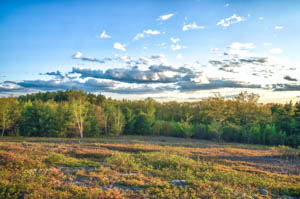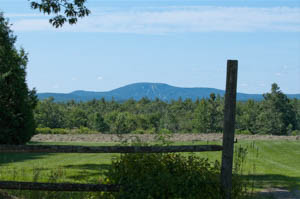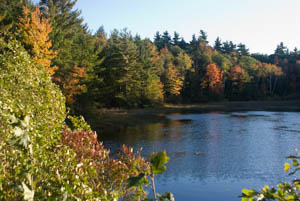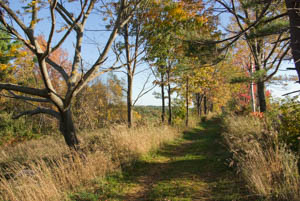 There are many reasons to conserve your land. Landowners can achieve many goals, while also conserving their land.
There are many reasons to conserve your land. Landowners can achieve many goals, while also conserving their land.
- Some landowners want to leave a legacy of conserved land;
- Some landowners need to provide house lots for family members;
- Some landowners have financial needs that require them to cash out some of their land’s value.
Important Points:
- You can get nearly the same income from the sale of your land for conservation as you can from selling it to a developer;
- You can sell the development rights to your land and continue to use it as before.;
 A conservation restriction (CR) is used to conserve your land, while you still own it.
A conservation restriction (CR) is used to conserve your land, while you still own it.
- The CR eliminates your right to develop your land. But you can still use your land for farming, recreation, timber harvests, hunting and similar uses;
- You can sell a CR or donate it;
- The CR is permanent, and you can sell your land with the CR on it.
- You can sell a conservation restriction on your land and continue to own and use it;
- A conservation restriction is a great way to conserve your land.
You can learn more about conservation restrictions here
 For many landowners, their land is their retirement and a source of needed funds. There are several grant programs that will pay you to conserve your land, including state and federal grant programs.
For many landowners, their land is their retirement and a source of needed funds. There are several grant programs that will pay you to conserve your land, including state and federal grant programs.
- We have experience using state and federal grant programs to fund land conservation;
- We work closely with your town, state conservation agencies and other partners to achieve your conservation goals;
- Most state grant programs have an annual grant cycle. It usually takes one year from the time the grant application is submitted to the time the land is conserved;
- We work closely with your town, state conservation agencies and other partners to achieve your conservation goals;
Grant Programs for Land Conservation
 There are some significant tax benefits to conserving your land. Tax benefits are available for donations of conservation land and a conservation restriction on land. Tax benefits take several forms:
There are some significant tax benefits to conserving your land. Tax benefits are available for donations of conservation land and a conservation restriction on land. Tax benefits take several forms:
- Tax Credits benefit you by decreasing the amount of income tax you owe. The Mass. Conservation Land Tax Credit also gives you a check for the difference between your state tax liability and 50% of the value of your conservation donation, up to $75,000;
- Tax Deductions benefit you by decreasing your taxable income. The federal charitable tax deduction can reduce your taxable income 30% per year for a land donation and 50% per year for the donation of a conservation restriction.
There are three Chapter programs:
- Chapter 61 for forested land, with a minimum requirement of 10 acres. A Chapter 61 Forestry Plan is required and can be provided by a forester;
- Chapter 61A for farmland, with a minimum requirement of 5 acres. The farm must produce a minimum of $500 per year (for the first 5 acres) in hay, vegetable products, animal or other products;
- Chapter 61B for open land, with a minimum requirement of 5 acres.
Important Points:
- You can use both the state Tax Credit and the federal Tax Deduction in the same year for the same conservation donation;
- You can use Tax Credits and Tax Deductions when you sell your land or a conservation restriction for less than fair market value. This is a Bargain Sale, where you receive cash for part of the value and tax benefits for the remaining value of the land or conservation restriction.
- Some landowners are reluctant to enroll in the Chapter 61 program, because they are concerned about penalties and roll back taxes. But many landowners who don’t enroll in the Chapter 61 program end up conserving all or some of their land, and losing out on years of paying lower real estate taxes. (There are no penalties or rollback taxes if you conserve your land.)
A comprehensive explanation of the Chapter 61 program can be found here